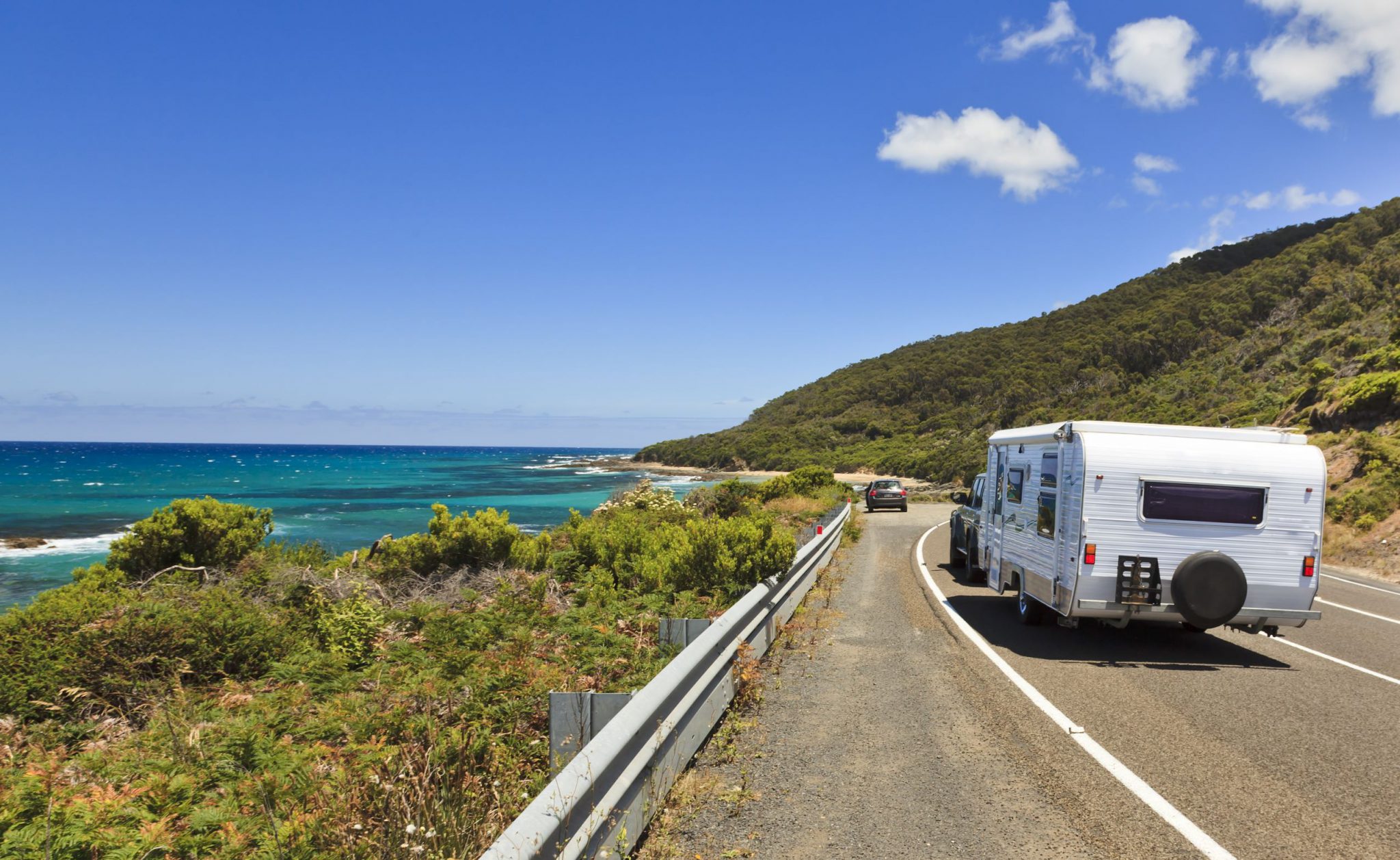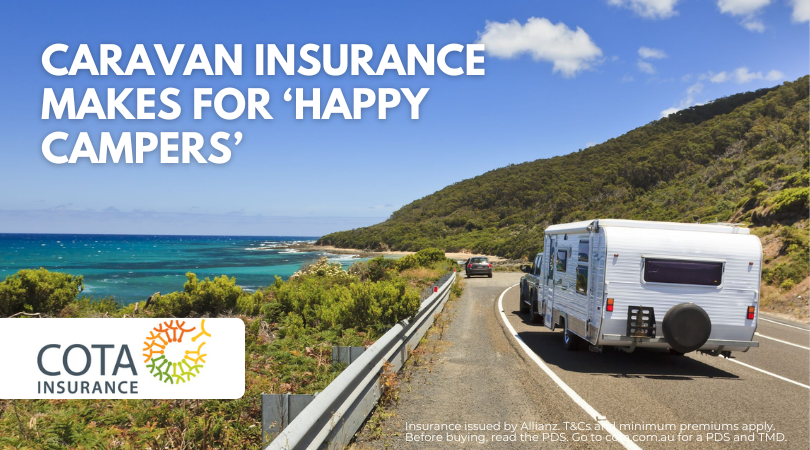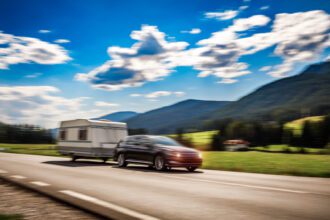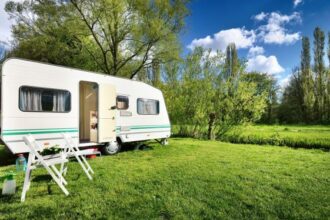Caravan Maintenance
For many, a caravan is their home away from home, and it is a large investment to look after. Regular maintenance on your caravan can prevent small problems becoming worse, keep all the facilities in good working order and help avoid any hiccups on your next trip.
These general maintenance tips should be carried out regularly, ideally before and after a trip away and in between professional services to help keep your caravan in top notch condition.
Regular maintenance checks should include, but not be limited to, the following:
Tyres
Tyres are critical to your caravan’s performance as they support the van weight and work with the suspension to provide a smooth ride. Make sure to inspect tyres for signs of damage or wear, such as cracks and bulges. Also check tyre age and pressure. The tyre pressure can easily be checked at a service station or with your own compressor. Old or damaged tyres need to be replaced. Remember to check the spare tyre is in good condition, and at the correct tyre pressure.
Wheels
Check for damage on the wheel rims, check the tightness of the wheel nuts and make sure your wheel bearings are in good condition and correctly grease-packed, tensioned and secured. Also remember it is important to inspect the wheels and make sure they are aligned on the hub. Depending on your level of expertise you may need an expert to check the wheel bearings.
Lights
Check all the lights between car and caravan to make sure they all work – front, back, brake lights, reverse lights and indicators. Also check that all of the running lights are working and replace any non-working bulbs.
Chassis and A-frame
Check that all structural parts and welds are free of damage, cracks, and rust. And that the undersides are also free from damage, mud accumulations, and loose components. Ensure all hoses, tubes and electrical wires are properly secured, protected and in good condition.
Coupling safety chains, D-shackles and jockey wheel
Check that the safety-chains are securely welded to the A-Frame and that the safety-chains, D-shackles, jockey-wheel and coupling are working properly.
Always use steel D-shackles, that are as strong as the safety chains, and have a threaded securing bolt.
Check that the jockey wheel handle and wheel turn freely, that the clamp/bolt is easy to use and that they are free from rust and stress fractures.
Check all 12-pin or 7-pin connection cables, plugs and sockets for signs of wear or looseness.
Suspension
Check that the suspension springs are in sound condition and positively located. Are all pins, bushes, hangers and shackles in good condition and lubricated as required?
Batteries and electrics
Check batteries are in good condition and fully charged.
The Residual Current Device (RCD) must be operating correctly; make sure the cut-out safety test switch works.
Extension cords need to be in good condition. Also its important to remember that each battery and solar-panel need to be serviced as per the manufacturers’ requirements.
Brakes
Check that the drums/discs and shoes/pads assemblies are in good condition.
Check that the cable system in a mechanical over-ride braking system is in good condition and adjusted correctly.
Ensure that you fully understand the operation – and adjustment – of electronic brake controllers.
It is imperative that you test the braking system for proper “balance” before you head off. Check on a safe gravel or wet road, before testing them at a higher speed on a dry sealed road.
It’s important to remember that any work done with your brakes needs to be done by a professional.
Handbrake
Ensure the handbrake engages and releases properly. Is it rust and corrosion free where the base plate fixes to the drawbar and check the condition of the cables.
Gas
Regularly inspect the flexible gas hoses and regulator connections.
Appliances
Test all caravan appliances and systems properly – fridge, cooker and heating/cooling systems – to ensure there are no leaks and are working correctly.
If you suspect a problem have a licensed technician inspect the caravan.
Awning
Check that the awning is working properly and that the extending/contracting motion is smooth. Also check the awning fabric for signs of damage. Clean the awning as needed.
Water
Check all water hoses, water lines and the connections for leaks and tightness.
With water tanks, empty stale water and frequently flush the system.
Vents
Check that the ventilation and gas drop-out vents are all clear and not blocked or obscured.
Seals
It is a good idea to periodically check the seals on the caravan door, windows and roof to ensure moisture and dirt don’t get inside. Thick rubber seals can crack over time and they will need replacing.
Cleaning
If you see any green growth or dirt on your van, you should clean it to avoid any surface damage to your van. Its important to clean your van regularly.
IMPORTANT: Get regular services at your caravan specialist
For serious problems and tasks outside of your skill set or qualifications seek help from a professional.
If you notice a gas leak, switch off the valve, evacuate the caravan and seek emergency help.
The experts should also attend to the following:
- Gas equipment or connections to gas appliances
- Mains electrical supply
- Any work on chassis or brakes including removal and refitting of brake drum
- Electric brake controllers
- Damp checking
- Warranty work
- Repairs to exterior bodywork
- Floor delamination or ‘spongy floor’
Other handy caravan maintenance tips
Towing weight
Try not to tow with full water tanks, unless you’re heading bush and won’t have the opportunity to fill up. This will increase vehicle wear and increase running costs.
Water tank health
You will need to flush out your water tanks every 6 – 12 months to maintain hygiene and keep them clean. Make sure to fill the water tank(s) using a hose at normal pressure.
For grey tanks, remember to dump all the water before flushing out with a good cleaner.
Avoid rust and mould
Rust and mould is usually caused by moisture and can be difficult or expensive to fix if not caught early. Always inspect your caravan for rust and mould and follow these tips:
- Store your caravan somewhere dry and if possible invest in a caravan cover
- Touch up any chipped or peeling paintwork and remove surface rust when it appears
- Clean your van, wipe interior surfaces with disinfectant and air the van regularly, especially when in storage.
- Check regularly for leaks inside and outside.
Personal protection
Do you have appropriate and current insurance for the caravan and towing vehicle? Make sure you have safety equipment such as a fire extinguisher, smoke-detector, CO [carbon monoxide] detector, and a first aid kit. Make sure they are all in good working condition.
Now you are up to speed on your caravan maintenance and set for a safe and comfortable getaway for you and your family.
Sources
www.jayco.com.au/blog/caravan-maintenance-tips
www.withoutahitch.com.au/caravan/service-maintain-caravan-motorhome/
www.fullrangecamping.com.au/caravan-maintenance-tips-cca/
www.xtendoutdoors.com.au/top-general-maintenance-tips-caravans/
This blog contains general advice only. Always consult an expert for advice on maintaining all parts of your caravan and vehicle.











